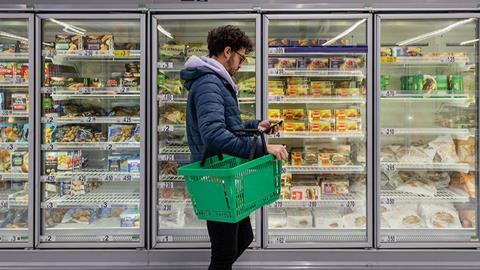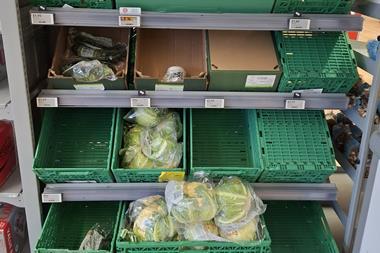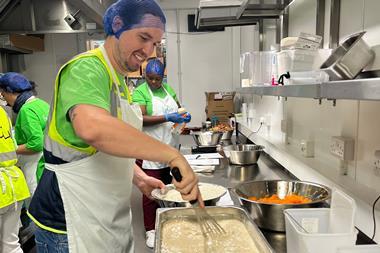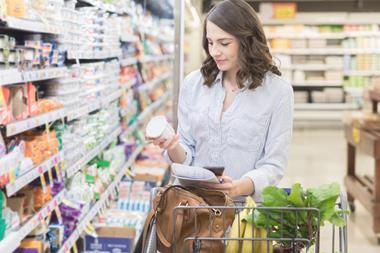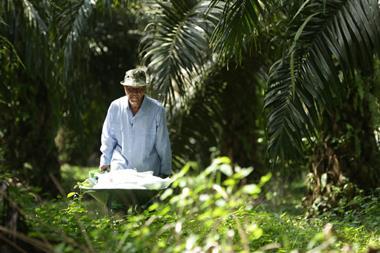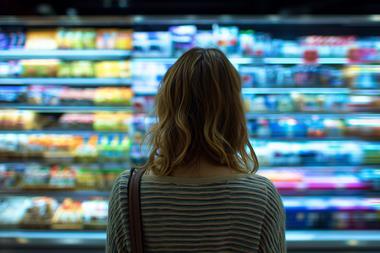Fewer treats, shopping around, and the return of pandemic behaviours are just some of the impacts of the cost of living crisis. Read the full report to find out more.
Unless you’ve been living under a rock – rent-free and without utilities – the cost of living crisis looms large.
And though there’s no shortage of media attention, much is focused on the numbers – be it around the energy price cap, lack of wage growth or high inflation.
While these macroeconomic factors impact people, it’s sometimes hard to know what it all means in real terms to the average person on the street. What are the latest trends in shopper attitudes and behaviour? How are strained finances changing what, where, and how we shop?
Rationalised shopping
Bray Leino’s annual Food & Drink Report delves into this and more, revealing a recurrent trend around the rationalisation of spending. Over a third of people are being more careful with their food budget, and increased concerns around price has seen a reduction in indulgent or non-essential purchases: there’s a downturn in people buying treats, takeaways and meal kits, or buying direct from butchers or farm shops.
Yet it’s not just what people buy that’s changing: 17% of shoppers have switched their usual grocery store for a cheaper one, mostly among younger shoppers (18-34s), while older generations seem more wedded to their trusted supermarket.
Nearly 1 in 5 shoppers have already switched their usual grocery store for a cheaper one
On-trade has suffered an especially tough couple of years, with lockdown closures, staff shortages, social distancing, and well-intended schemes like Eat Out to Help Out placing new demands on the sector. The current cost of living crisis looks set to further hamper recovery, with 55% of people saying they are going out for food and drink less compared to six months ago; half expect to go out less in the coming 6-12 months.
While there is a widespread expectation that food and drinks prices will increase in the future, there is a significant difference in expectations between age groups: the over 55s are much more likely to expect increased prices than 18-34s (71% versus 38%). Echoing the supermarkets switch outlined earlier, 21% say rising costs in food and drink venues will make them look for cheaper venues and 20% will look for deals and packages.
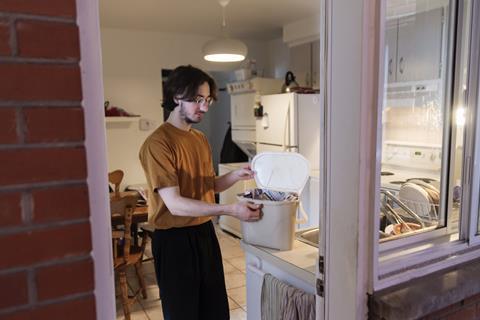
Pandemic behaviours making a comeback
When Bray Leino spoke to consumers during the first national lockdown in 2020, food waste emerged as a significant concern, with 59% saying they were being more careful; last year this dipped to 50% but this year 70% of people claim they are being more careful about waste – and this behaviour is most common among those worse-off financially.
There have also been significant rises in those saying they are buying more frozen foods, buying more in bulk and cooking using more tinned and dry ingredients.
Shoppers buying more frozen, more in bulk, more tinned and dry ingredients to save money
On top of these reported findings, Bray Leino predicts the possible return of another pandemic behaviour, as cost-cutters turn ‘in-in’ into the new ‘out-out’: the ‘fakeaway’ proved a popular remedy to the unavailability of takeaways; now, household budget squeezes will see people look for ways to elevate the ordinary, recreating their favourite menus at home for a fraction of the price. This time around though, these could be considerably more social occasions.
Deals and discounts have mass appeal
With shoppers becoming increasingly careful how and where they spend, special promotions will carry extra appeal. 47% of people say deals and promotions would prompt them to buy from or visit a food retailer and 33% say locally sourced food and drink would draw them in. A quarter would be attracted by sustainably sourced food and drink and the same proportion by promotions for occasions (seasonal events like Christmas; mass sporting events…).
There is the same hierarchy for restaurants and pubs, but with lower level figures. For example, a third say deals and promotions would attract them rather than nearly half the sample for supermarkets.
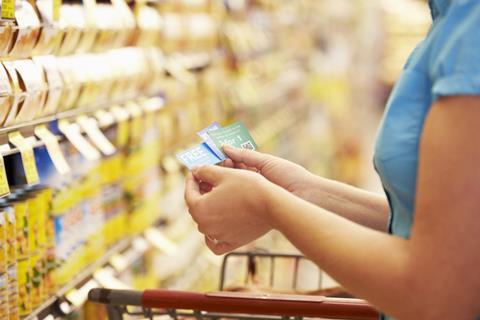
Opportunity for brands to do the right thing
Bray Leino’s past Food & Drink Reports have documented the rise of the conscious consumer, with environmental concerns proving increasingly pertinent. But as people make cutbacks where they can, we see a dip in behaviours around some key environmental factors: non-recyclable plastic packaging has proven a passion point in previous years; now, 66% are concerned about the environmental implications of non-recyclable plastic packaging, compared with 70% a year ago. 52% avoid buying products that have non-recyclable plastic packaging where possible, compared to 55% in 2021. And 46% say they are ‘seriously changing my behaviour around buying products with single use plastics and have opted to not buy products that use this packaging’, which fell slightly from 53% last year.
It is worth noting that the overall levels of concern remain relatively high. 56% of people feel it is important to choose retailers that act in a sustainable way, proving another opportunity for brands to cut through in difficult times.
56% of shoppers will choose a retailer that acts in a more sustainable way
Shoppers want to do the right thing and brands can make this as easy as possible by highlighting sustainability credentials in a clear and effective way.
But brands should be honest with their communications and avoid greenwashing. Because this is an area which matters to people, there’s no pulling the wool over anyone’s eyes: A quarter of the report’s respondents feel there should be more scrutiny over sustainability claims (over 35s especially), 19% feel that companies only do the bare minimum they can get away with and 17% that companies only do this to boost their reputation.
So now is the time for brands to support people’s desire for conscious consumption, stepping in to support best intentions and provide hope, when the bottom line is front and centre.
For more information on how the cost of living crisis is changing our food & drink habits visit Bray Leino’s website: https://www.brayleino.co.uk/








